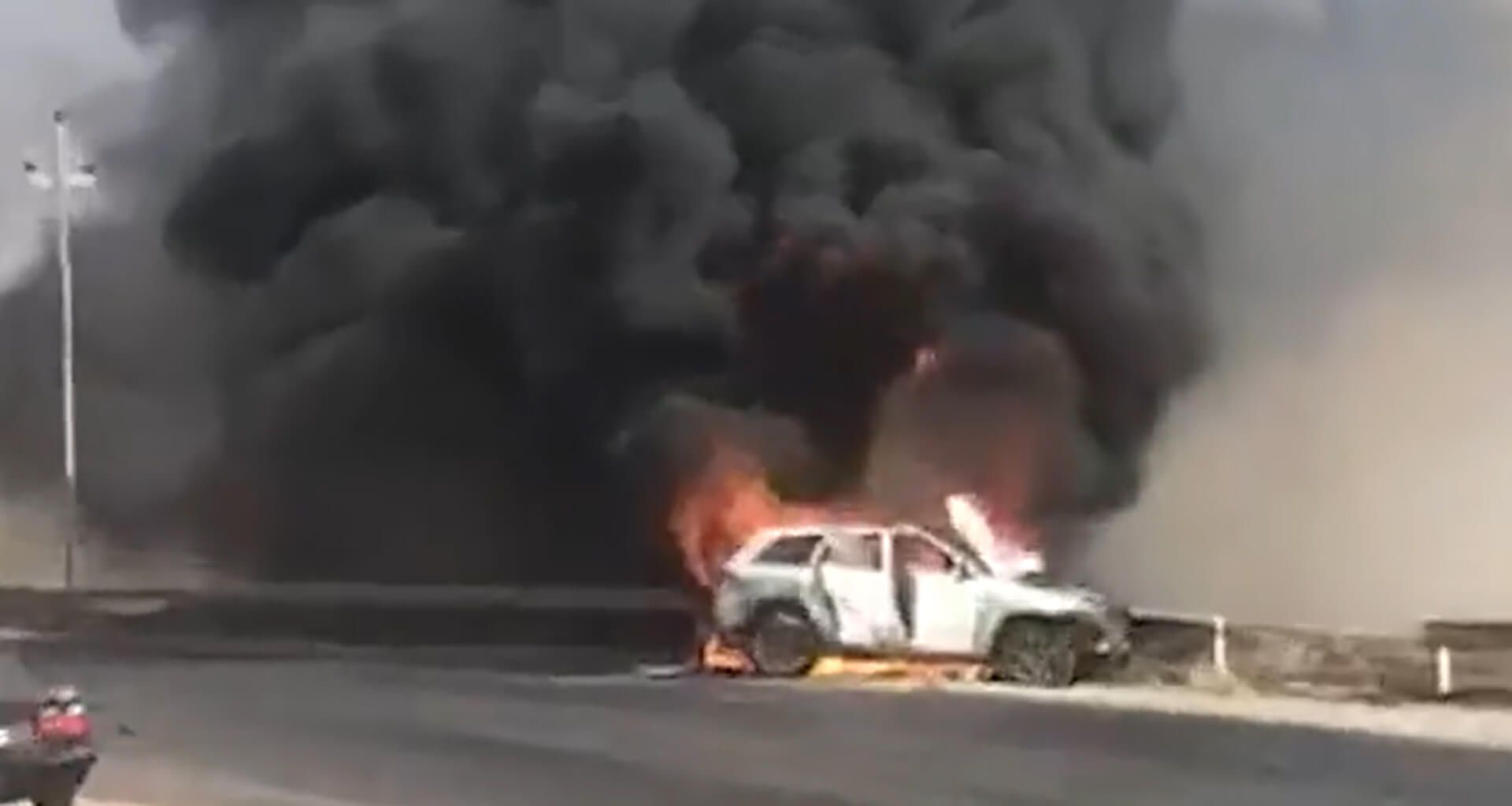Turkey has waged an air campaign against the Kurdistan Workers’ Party (PKK) in the Kurdistan Region and other parts of northern Iraq for years; civilians are regularly killed or wounded. In early August, a spate of Turkish airstrikes killed at least seven people deep within Iraq’s Kurdistan Region, including at least five civilians. In two instances, the victims were traveling on some of the busiest civilian roads in the Sulaymaniyah Governorate. The intense barrage, taking place in populated areas over several days, was particularly brazen. Notably, neither of the Kurdish ruling parties—the Kurdistan Democratic Party (KDP) and the Patriotic Union of Kurdistan (PUK)—nor Iraqi officials in Baghdad condemned the attacks.
Turkey frequently stages cross-border strikes on targets in the Kurdistan Region and other nearby areas, including Makhmour and Sinjar. It justifies these attacks as necessary to combat the PKK, but they regularly result in harm to civilians. According to Community Peacemaker Teams (CPT), an international human rights group that has a robust mission in the Kurdistan Region, an estimated 129 civilians have been killed and another 180 wounded in Turkish cross-border attacks since 2015. Last year was the deadliest during that period. Between 18 and 20 civilians were killed, including six children, and 57 to 58 civilians were injured in 2022, according to CPT.
The recent attacks
On August 6, the Turkish military conducted an airstrike on the village of Chnartu, just south of Aghjalar in the Sulaymaniyah Governorate. The airstrike reportedly killed one person of disputed affiliation. Ankara had targeted the area in May 2022, killing five people. Later that day, a second strike killed a 24-year-old civilian and wounded another. They were traveling in a car in the Duhok Governorate’s Chamanke district. They were visiting a family farmhouse, according to relatives. The area is just a few miles away from Gara Mountain, parts of which are held by the PKK and are regularly attacked by Turkish forces.
Then, on August 9, an airstrike hit a car traveling on the Erbil–Sulaymaniyah road just northwest of the resort town of Dukan. Two civilians were initially reported as wounded and one of them later died. Footage of the burning vehicle spread quickly on social media. This is an extremely important road: in the six years since Kirkuk became part of federal Iraq, the route has carried the majority of civilian traffic between Erbil and Sulaymaniyah, the Kurdistan Region’s two largest cities and has handled the bulk of commercial traffic between the zones controlled by the KDP and the PUK, respectively.
Two days later, three civilians, including a 17-year-old girl, were killed in an airstrike on their car on a busy road near Nalparez in the Sulaymaniyah Governorate’s Penjwen district. Again, footage of a burning car was all over Kurdish social media. As with Dukan, the attack took place on a major road full of civilian and commercial traffic. The two-lane thoroughfare connects Sulaymaniyah with the Bashmakh border point, one of three major crossings between the Kurdistan Region and Iran.
The Kurdistan Counterterrorism Service, which is affiliated with the KDP and closely linked with Kurdistan Region Prime Minister Masrour Barzani, posted a message on Facebook claiming that those killed were PKK fighters, but this was quickly proved to be false. In reality, the victims were Arabs originally from Mosul who were living in Duhok Governorate. One was an employee of Asiacell, a major telecommunications company. He was driving his neighbor and her daughter to the border in order to meet another daughter who is currently studying in Iran.
It’s crickets from the politicians
In response to the latest barrage and the civilian deaths, the KDP, the PUK and Iraqi officials in Baghdad were conspicuously silent. The KDP, headquartered in Erbil, has close economic, political and security ties with Turkey and therefore rarely criticizes Turkish cross-border attacks. Instead, it frequently argues that the presence of the PKK in the Kurdistan Region is responsible for harm to civilians or issues statements that support Ankara’s narrative, as the Counterterrorism Service did following the Penjwen airstrike. The KDP and the PKK have a hostile relationship and have engaged in sporadic clashes as recently as 2021.
The PUK, based in Sulaymaniyah, is more willing to criticize Turkey and has a relatively neutral relationship with the PKK in which both tend to avoid interfering in each other’s affairs. However, the party maintains close ties with Syrian Kurdish groups that Ankara views as one and the same as the main branch of the PKK. In recent months, Ankara has pressured the PUK to engage in a public crackdown on the PKK in its zone of control, including by shutting down its airspace to flights going to and from Sulaymaniyah International Airport until at least January 2024. The airstrikes in Sulaymaniyah in recent weeks are likely a way to increase this pressure on the PUK to act.
Iraqi federal officials have also not condemned the attacks. In general, they tend not to comment on Kurdish casualties, but the fact that they have not spoken out against the deaths of the Arabs in Penjwen is notable. It stands in stark contrast to the outrage following the deaths of nine Arab tourists who were killed in Turkish shelling at Parkhe, a village resort in the Duhok Governorate, in July 2022. Some within the Shia Coordination Framework, which forms the core of Prime Minister Mohammed Shia’ al-Sudani’s government, are actively hostile to Turkish violations of Iraqi sovereignty.
The collective silence is likely related to a two-day visit by Turkish Foreign Minister Hakan Fidan that began this Wednesday and took him to Baghdad and Erbil. There is widespread speculation that Turkish President Recep Tayyip Erdoğan will also visit in the near future, depending on the success of his foreign minister’s visit. Before taking up his current post on June 3, Fidan was the head of Turkey’s intelligence service and was heavily involved in the conflict with the PKK.
Fidan’s visit comes at a delicate time for Iraq–Turkey relations and talks are expected to cover an extensive agenda that includes oil, water, security and trade. In many ways, Ankara has staked out a maximalist stance on these issues in order to elicit concessions from Baghdad; the recent airstrikes are likely part of that strategy. The Kirkuk–Ceyhan pipeline, which until March carried the Kurdistan Region’s oil exports, is currently shut down following an arbitration ruling that favored Iraq. Turkey wants Iraq to drop a second case in return for the resumption of exports. Iraq is dealing with major water shortages caused by Turkish upstream damming and has been largely unsuccessful at convincing its neighbor to release sufficient water supplies. The future of the recently announced Iraq Development Road, a $17 billion road and rail project, hinges on a Turkish outlet at the northern end. Indeed, these are big stakes.
While it is unsurprising that Iraqi and Kurdish officials do not want to upset Ankara ahead of these talks, it is also reprehensible. That civilians can be killed with such impunity and hardly a murmur of official outrage shows the weakness of Iraqi and Kurdish leaders who hide behind realpolitik while their people are killed from above.
[Arab Digest first published this piece.]
[Anton Schauble edited this piece.]
The views expressed in this article are the author’s own and do not necessarily reflect Fair Observer’s editorial policy.
Support Fair Observer
We rely on your support for our independence, diversity and quality.
For more than 10 years, Fair Observer has been free, fair and independent. No billionaire owns us, no advertisers control us. We are a reader-supported nonprofit. Unlike many other publications, we keep our content free for readers regardless of where they live or whether they can afford to pay. We have no paywalls and no ads.
In the post-truth era of fake news, echo chambers and filter bubbles, we publish a plurality of perspectives from around the world. Anyone can publish with us, but everyone goes through a rigorous editorial process. So, you get fact-checked, well-reasoned content instead of noise.
We publish 2,500+ voices from 90+ countries. We also conduct education and training programs
on subjects ranging from digital media and journalism to writing and critical thinking. This
doesn’t come cheap. Servers, editors, trainers and web developers cost
money.
Please consider supporting us on a regular basis as a recurring donor or a
sustaining member.
Will you support FO’s journalism?
We rely on your support for our independence, diversity and quality.







Comment